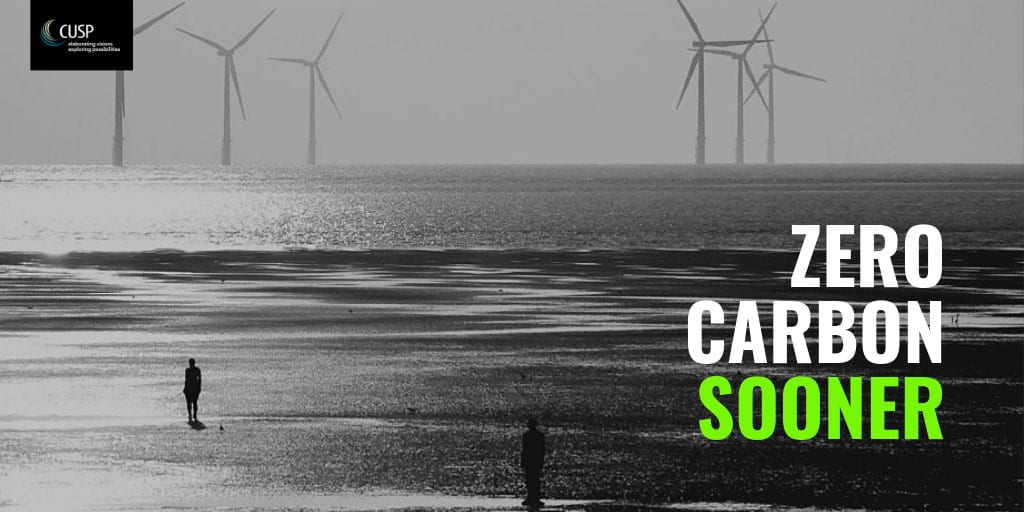Zero Carbon Sooner
—The case for an early zero carbon target for the UK
Tim Jackson
CUSP Working Paper Series | No 18

This paper has been revised in October 2021 to take account of new findings from the IPCC’s updated 6th Assessment Report (AR6). For the updated numbers, please see Working Paper No 29.
Summary
This briefing paper addresses the question of when the UK should aim for zero (or net zero) carbon emissions. Starting from the global carbon budget which would allow the world an estimated 66% chance of limiting climate warming to 1.5o C, the paper derives a fair carbon budget for the UK of 2.5 GtCO2. The briefing then analyses a variety of emission pathways and target dates in terms of their adequacy for remaining within this budget. A key finding is that a target date for zero carbon is not sufficient to determine whether the UK remains within its carbon budget. Policy must specify both a target date and an emissions pathway. For a linear reduction pathway not to exceed the carbon budget the target year would have to be 2025. Nonlinear pathways, such as those with constant percentage reduction rates, have a higher chance of remaining within the available budget provided that the reduction starts early enough and the reduction rate is high enough. It is notable that reduction rates high enough both to lead to zero carbon (on a consumption basis) by 2050 and to remain within the carbon budget require absolute reductions of more than 95% of carbon emissions as early as 2030. On this basis, the paper argues in favour of setting a UK target for net zero carbon emissions by 2030 or earlier, with a maximum of 5% emissions addressed through negative emission technologies.
The paper is available for download in pdf (743kB) | Jackson T 2019: Zero Carbon Sooner—The case for an early zero carbon target for the UK. CUSP Working Paper No 18. Guildford: University of Surrey.
Update
Please note that a revised version of the paper is available, to take account of new findings from the IPCC’s updated 6th Assessment Report (AR6). For the updated numbers, please see Working Paper No 29 (October 2021).
Global Carbon Budget
For SD simulation enthusiasts, an illustrative model of the dynamics described in the paper—developed for the global carbon budget by Peter Victor—can be accessed on the ISEE Systems website. The model determines the number of years in which the global carbon budget will be exhausted.




